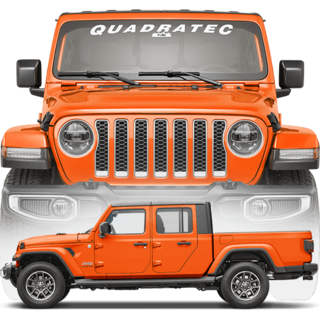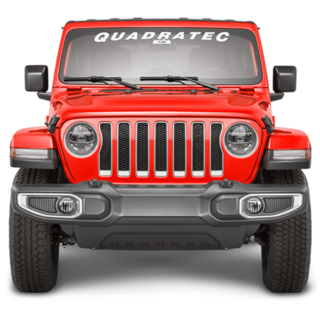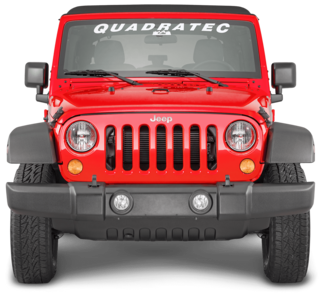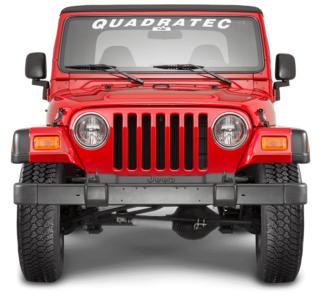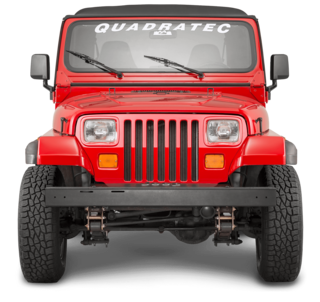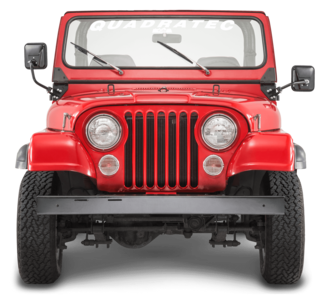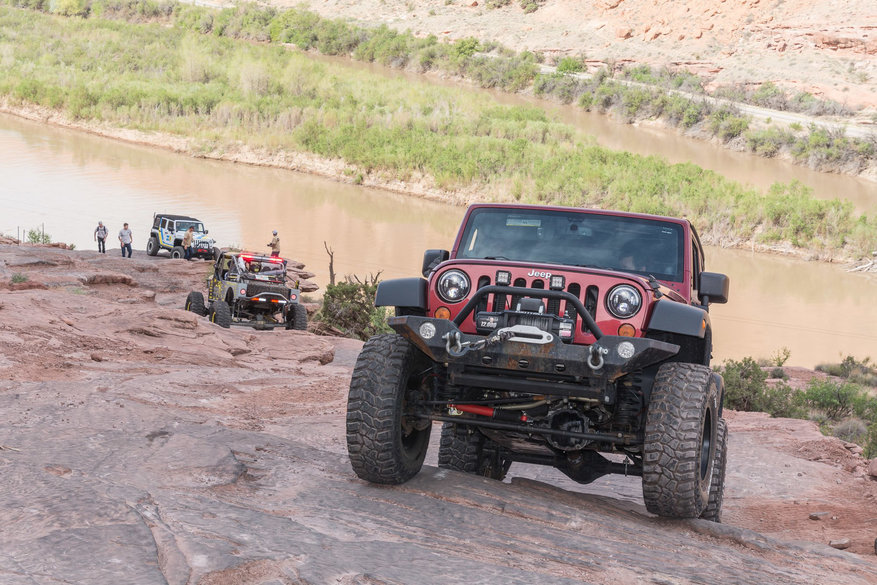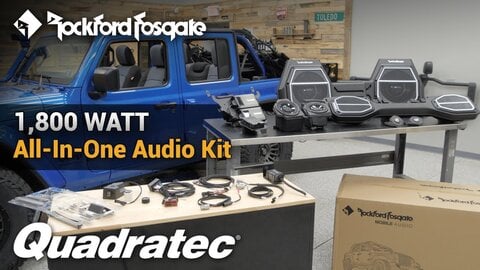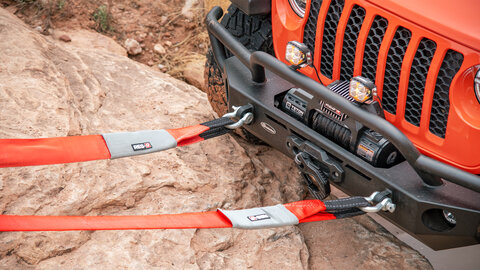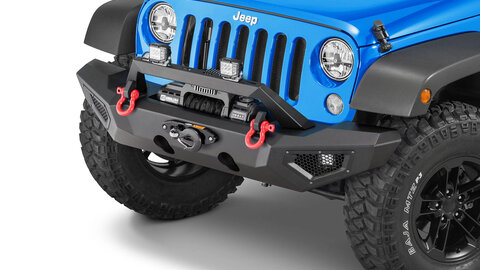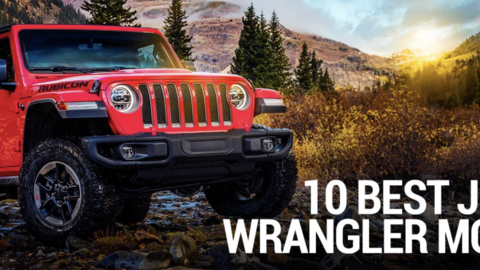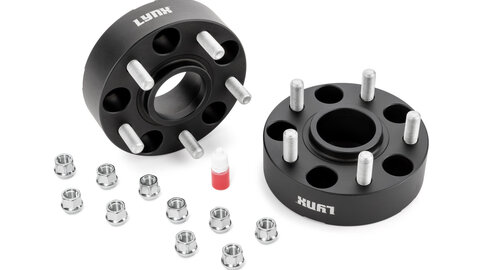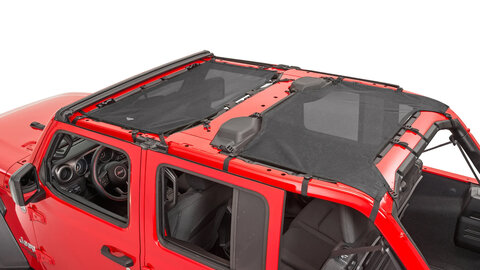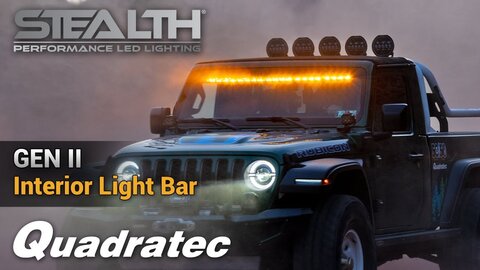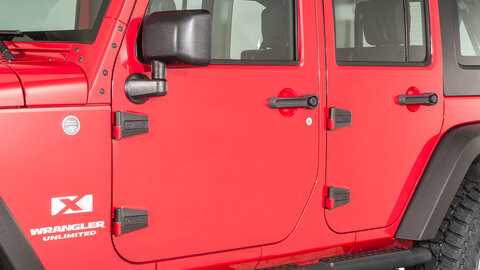by Matt Konkle
Managing Editor
You’ve no doubt seen it everywhere. In advertisements. On television. Stuffed inside magazines and featured across newspaper broadsheets. A Jeep doing things that Jeeps do — climbing rocks, speeding down trails and posing for stunning photographs that are only born from far-off-the-pavement adventures.
Maybe those pictures imitate the vehicle in your driveway right now. And perhaps the ads have inspired you to start doing all of those things, too. Well, as you entertain the notion and begin researching all the places you can go with your Jeep, you should also understand that heading off-road is more than just sitting behind the wheel and driving.
It involves planning, packing, products, parts and a host of other stuff that will ensure a successful trip.
So, in order to get the most out of your off-pavement time, as well as remaining safe and enhancing your enjoyment, here are 10 things you really should know before taking that first off-road trip.
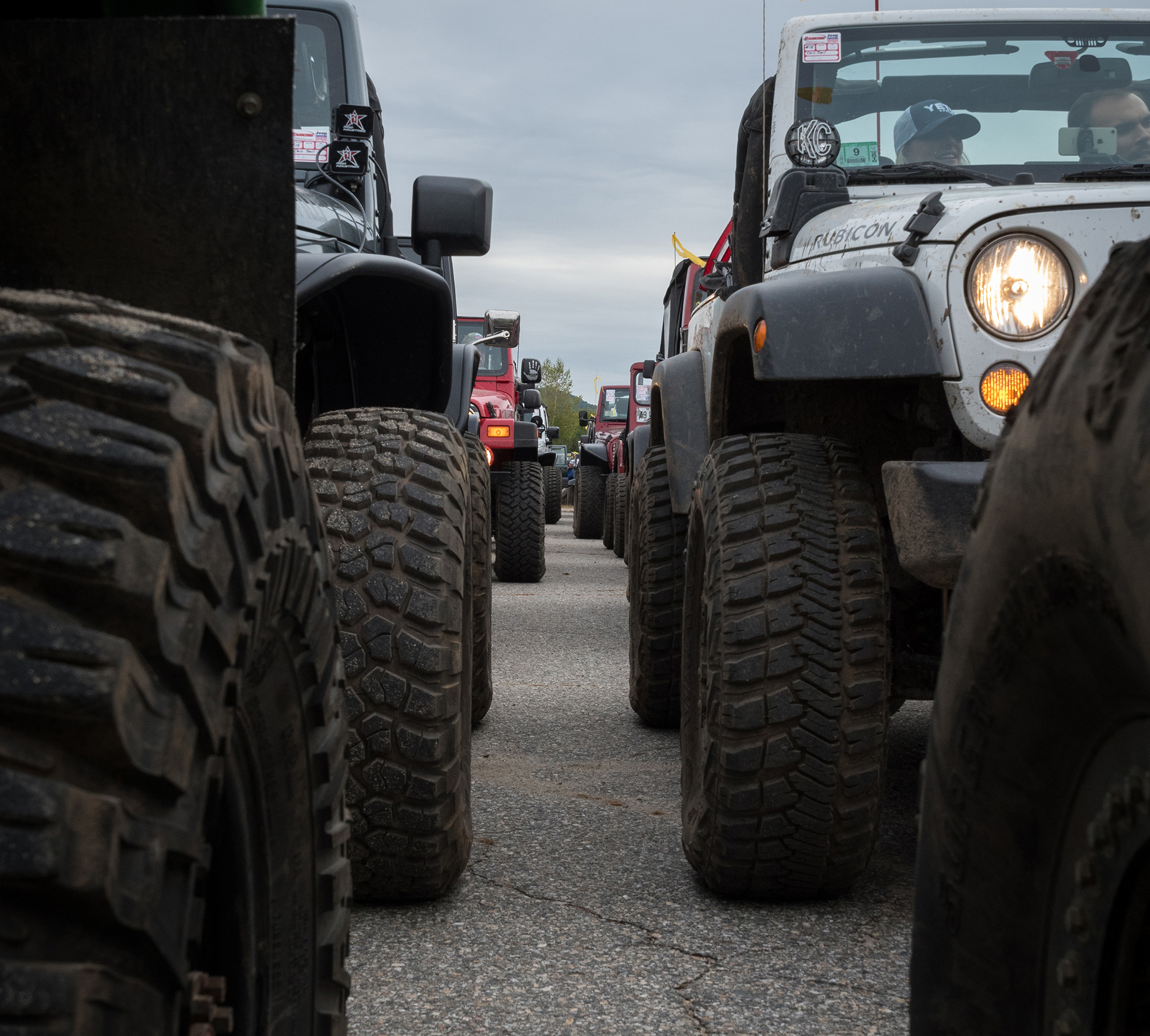
Never go by yourself
If you talk about a cardinal sin in the off-road world, it would be off-roading alone — especially if you’ve never gone out before. While it may seem fine to those who recently purchased a Jeep to try it out, off-roading isn’t like going to a tennis court for the first time and hitting balls against a backboard. Any number of things could happen while you are off-road; many of which you have no control over like a mechanical, engine, or tire issue. Or an obstacle could cause a part failure such as a tie rod bend. Sure, the odds of something like that happening may be on the lower side, but they do happen. So always make sure to be part of a group when off-roading.

Fuel
Before you reach your destination, make sure to stop at the gas station and fill up your tank. Once you arrive there won’t be anywhere on the trail you can stop to refuel, so starting a ride with a full tank is important. This may seem like common sense, but there are plenty of trail guides out there who’ll tell you stories about groups who had at least one vehicle not sufficiently fueled for the day.

Research
Whether your first off-road trip is just for a day, weekend, or longer, make sure to do some planning beforehand to understand the terrain you’ll be driving, as well as the expected weather.
Often, that first off-road trip will be with friends or a local Jeep club so you can use them as a reference as to the kinds of conditions you can expect. If not, an internet search about the area should help answer questions. Then, make sure to pack appropriately. Take an extra change of clothes, as well as a few pairs of socks and another set of shoes. These extras are always helpful in case you are out of the vehicle a lot during the day and your originals get muddy or water soaked.
Of course, even though these are summer months, it could still get a little chilly on the trail depending on your altitude. So make sure to pack layered clothing and a weather-appropriate jacket. Additionally, make sure you know about how your vehicle works before you leave for the trip — especially if it is fairly new to you. As a first-time off-roader, you may not know how the four-wheel-drive system operates, or why using lockers is so important if the vehicle has them equipped.

Pack plenty of food, drinks and snacks
Don’t just show up and head out on the trail for the day. After all, there are no restaurants or take out service in the wilderness. So make sure to bring a cooler and stock with plenty of water or other non-alcoholic drinks, as well as snacks, lunch and dinner — or more if it is a weekend (or longer) adventure.
Always remember that you don’t punch a clock for a Jeep trail ride so there are no guarantees you’ll be back to the trailhead at a certain time. All it takes is a recovery or two and you could find yourself out on the trail way longer than anticipated. Also, whether you have a fridge freezer or some other cooler, definitely include several food storage bags or Tupperware so no leftovers spoil.

Cleaning Items
Just like food and drinks are important to bring with you for that time on the trail, it is also important to store stuff for cleaning up. We’re talking about plenty of wet wipes, hand sanitizer, paper towels and (yes) toilet paper to ensure any messes are dealt with properly. It can get quite dirty and dusty on the trail — especially if you need to do things like move rocks, branches or help out someone (or yourself) with a Jeep issue. So being able to clean up before eating, as well as after, is certainly important. And, of course, make sure to bring some garbage bags so you can properly secure any trash you produce or find along the way. Even better, grab a Trail Sac so you can just throw stuff in there as it accumulates.

Air down/air up basics
Driving your Jeep on the trail is quite a bit different than operating it on the pavement. So in order to prepare for whatever lies in wait on the trail, make sure you understand how to properly air down your vehicle's tires before that ride begins. Essentially the lower you set your vehicle's tire pressure when off-road, the more that tire contacts the ground — giving you better traction and the ability to overcome most obstacles. There are tire deflation devices you can use to accomplish this and the best time to air down those tires is right at the trailhead. Don’t be that driver who has to stop the group to air down shortly after setting out.

Proper Equipment
You don’t need a suspension lifted, giant tire wearing, winch-equipped Jeep battle mobile to enjoy your first time off-road. That’s because your Jeep is fully capable right now to tackle many of the trail systems (within reason) around the country. However, there are some important recovery items you should bring along just in case you something comes up during the ride. And most of these can be found in Jeep recovery kits. Things like tow straps, D-Rings, gloves are perfect to have in case something happens out there. So are tire repair kits, first aid bags, utility knifes and trail shovels.
Sure, someone else may have those items in your group, but why take that chance. Having the proper equipment on hand definitely saves time should you need to recover your vehicle, or assist someone in front or behind you.

Communication
As a first-time off-roader, never assume you will have cell phone service the entire time when out on the trail. That’s why adding a handheld CB or GMRS radio to your trail gear list, or even installing a new unit in the vehicle if you plan to expand your off-roading efforts, is highly recommended. Sure, trail riding is done in a group, but sometimes that group gets spread out and suddenly there is a fork in the trail so you are not sure which way to go. Or perhaps there is an approaching group of riders and the trail guide needs to let you know to get over. Or maybe something even more important like being able to hear when there is an obstacle on the trail you need to avoid. Plus, it is always nice to have that ability to speak up and ask questions should anything arise while driving

Ego
One of the biggest issues for most first-time off-roaders is ignoring their, and their vehicle’s, limitations. It is kind of like the eyes are bigger than the stomach thing. They will encounter an obstacle and then, whether it is peer pressure or just wanting to overcome something, they ‘order more than they are capable of eating’ — meaning trying something too hard for their skill level and vehicle build. So before encountering something that damages that ego, or worse, the vehicle, make sure to put any stubbornness aside and listen to reason. Follow your spotter’s directions and never try something that makes you uncomfortable. This also works the same when planning your trail adventure. Take an honest assessment of yourself and that Jeep, and choose a group that fits with your abilities. Never just wing it out there. After all, you have to drive the Jeep home, right?

Be Courteous
There are no stop signs or traffic signals on the trail, but that doesn’t mean you leave all driving etiquette at the trailhead. Your trail leader should provide some instructions before you head out, but here are some of the basics that will keep everyone safe. First off, always stay on the trail itself and never take a short cut through vegetation or other types of non-trail land. This can damage areas off the trail and lead to erosion, or that area may even be private property. So stay on the trail and tread lightly. Next, many trails are also multi-use so things like mountain bikes, all-terrain vehicles, hikers or horses always have the right of way. Additionally, if you stop for any reason, try to leave as much space as possible for any oncoming traffic and try to never stop at a blind curve. If you are approaching a steep hill and there is another Jeep at the bottom looking to climb, the climber has the right of way as it is more difficult to back down a hill if something happens. Also, make sure to keep some distance from the Jeep in front of you, while also never losing sight of the vehicle behind you. Trail direction can sometimes change and if you reach a spot that has multiple exits, you need to make sure the vehicle behind you knows that to do. At night, use enough light to see to see the trail ahead of you. This means not switching on that super-lumen light bar as it can seriously blind oncoming traffic as well as the driver in front of you. Finally, and one of the most important things you can do on the trail, is never drink and drive.
Related Articles:
When Is It Time To Change My Jeep's Tires?

